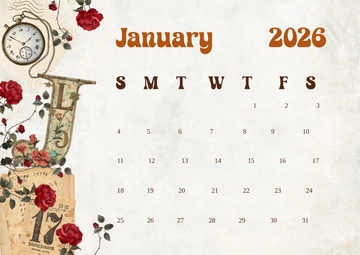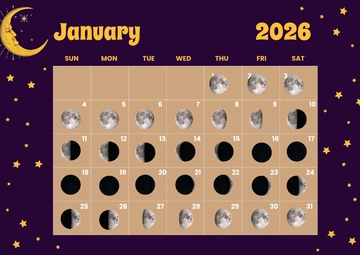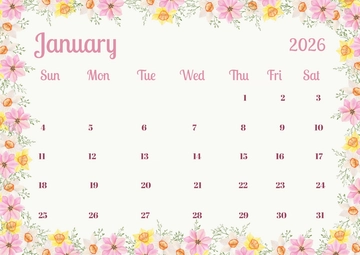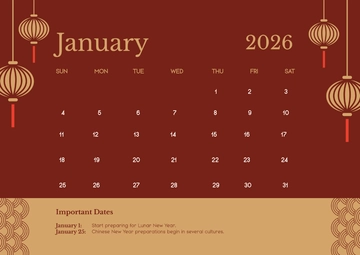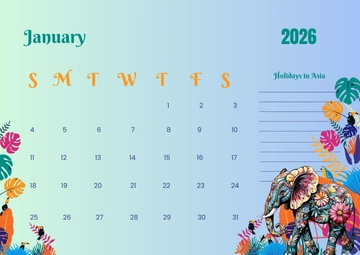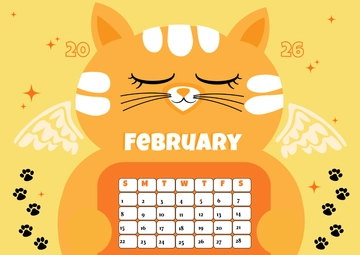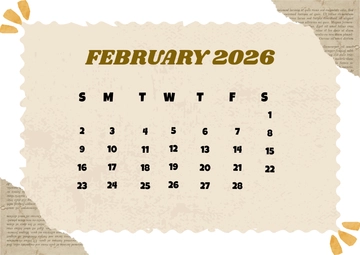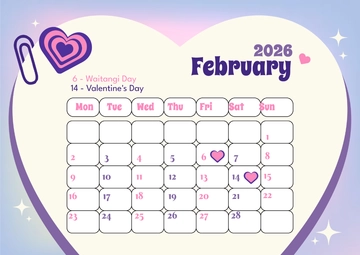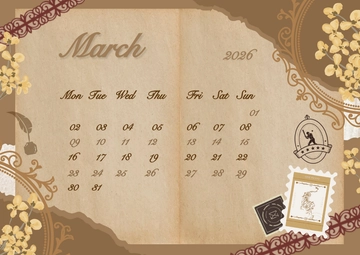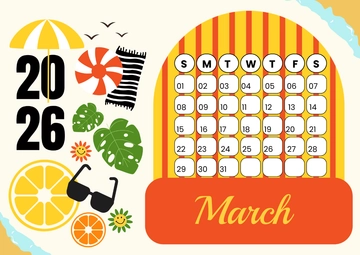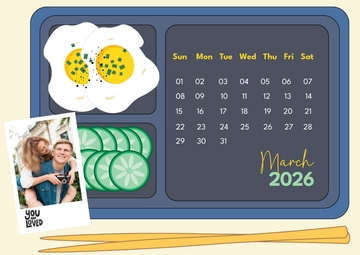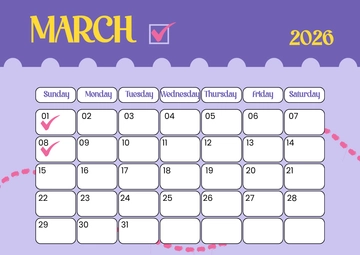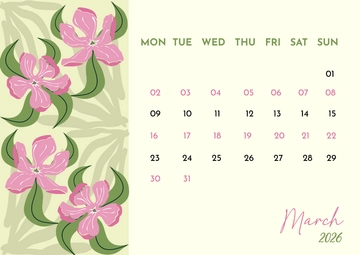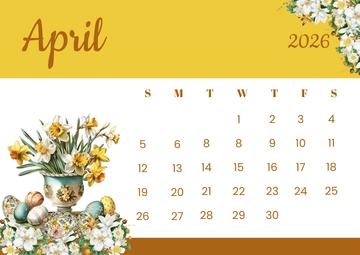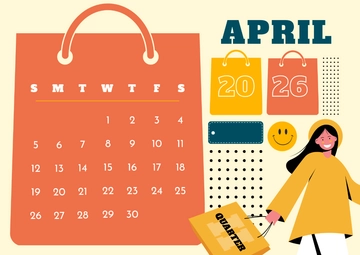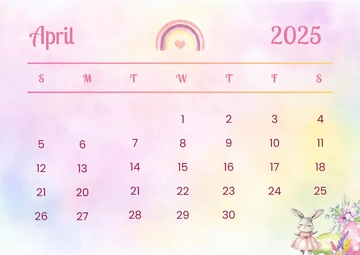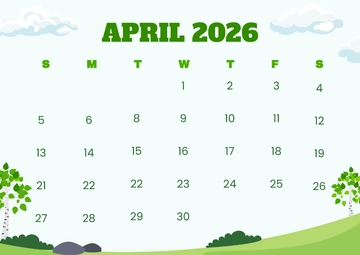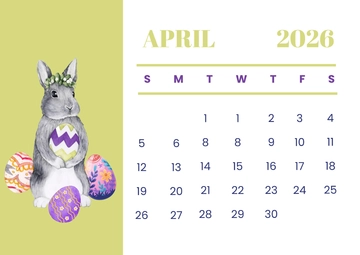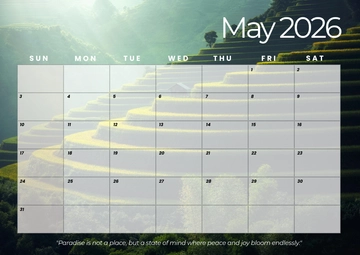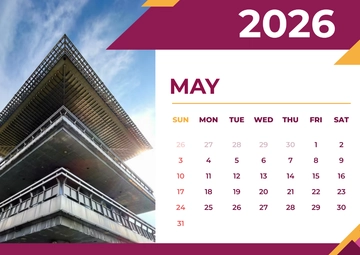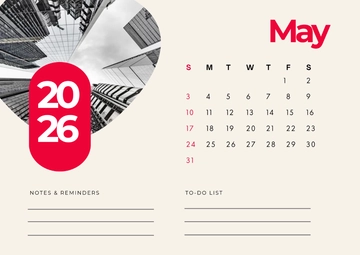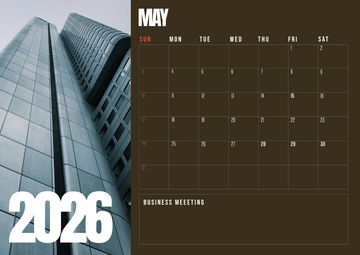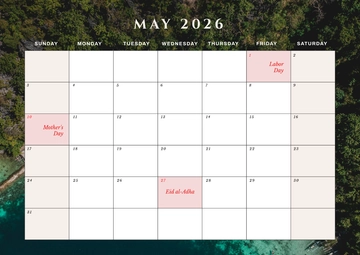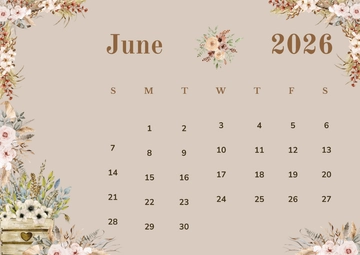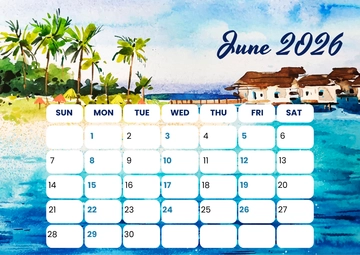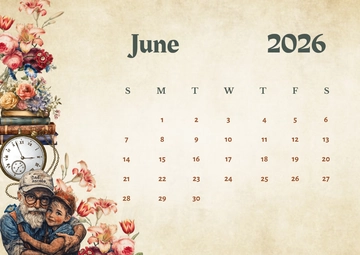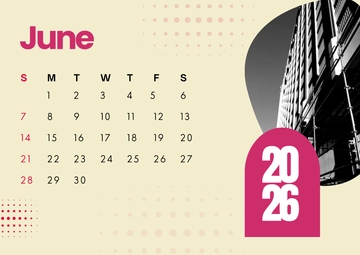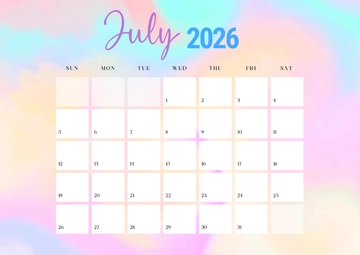Free Multicultural Calendar and Event Planning HR
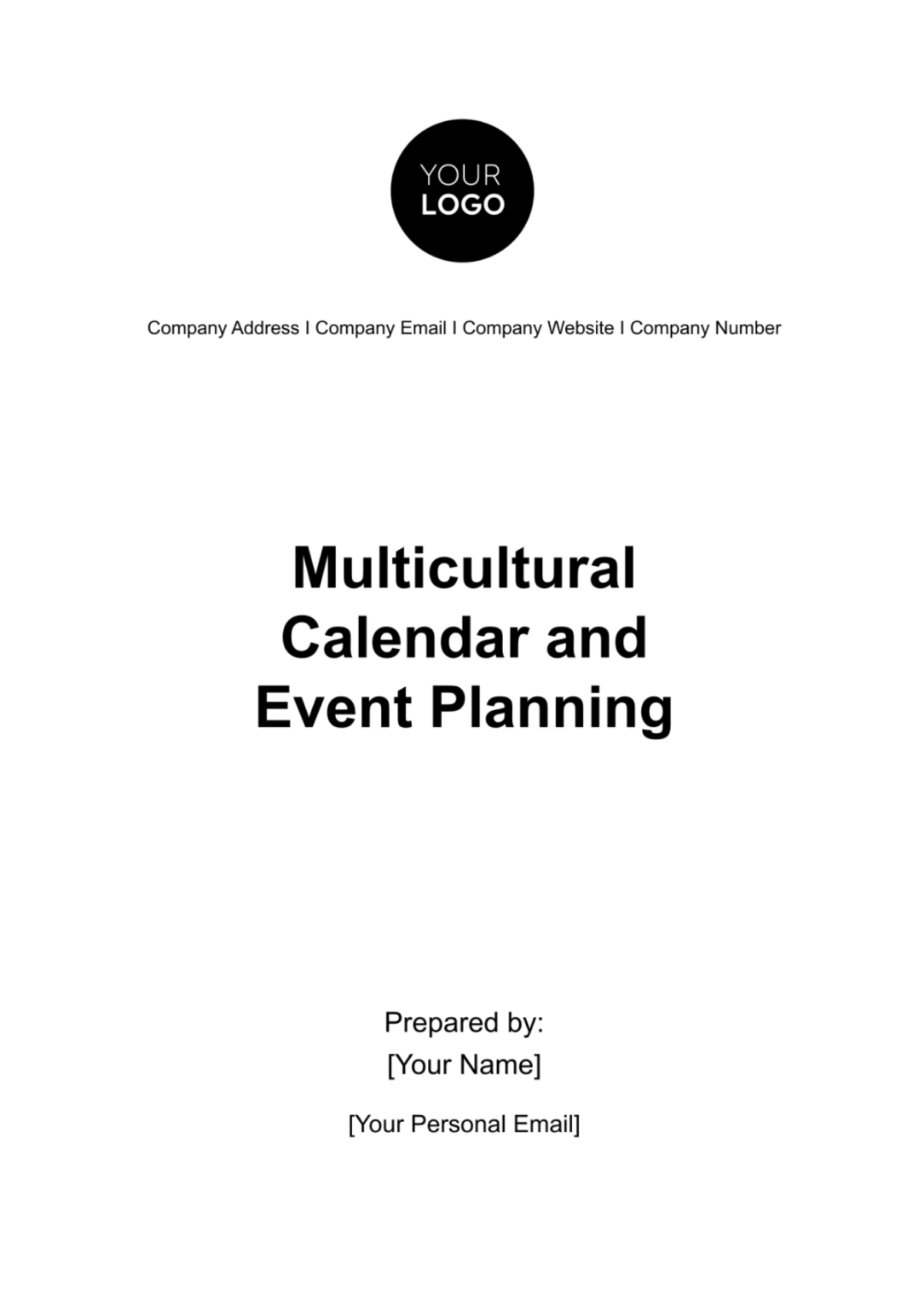
Introduction
At [Your Organization Name], fostering a diverse and inclusive workplace is not just a goal; it's a fundamental part of our identity. In this section, we introduce the Multicultural Calendar and Event Planning HR guide—a powerful tool that embodies our commitment to cultural awareness, diversity celebration, and inclusivity within our organization.
Purpose and Significance
In today's globalized and interconnected world, diversity is more than a buzzword; it's a cornerstone of success. At [Your Organization Name], we recognize that a diverse and inclusive workplace is not only a reflection of our core values but also a driver of innovation and success. This Multicultural Calendar and Event Planning HR guide serves as a vital tool to promote cultural awareness, celebrate diversity, and foster an inclusive environment within our organization.
The significance of diversity and inclusion cannot be overstated. Studies consistently show that diverse teams outperform their counterparts in terms of creativity, problem-solving, and overall business performance. According to McKinsey & Company, companies with more diverse workforces are 35% more likely to outperform their less diverse peers. However, diversity goes beyond just numbers; it's about creating an environment where every individual feels valued and can bring their authentic selves to work. It's about recognizing the unique perspectives and talents that each employee contributes.
Statistics: A study by Deloitte found that organizations with inclusive cultures are eight times more likely to achieve better business outcomes. Furthermore, according to a report by the Harvard Business Review, organizations that effectively manage diversity and inclusion are 70% more likely to capture new markets.
Objectives
Our key objectives for the Multicultural Calendar and Event Planning initiative are as follows:
Promote Cultural Exchange: We aim to facilitate opportunities for employees to share their cultures and traditions, promoting cross-cultural understanding. This exchange of ideas and experiences is a wellspring of creativity and mutual respect.
Celebrate Diversity: The Multicultural Calendar will serve as a platform to mark culturally significant dates, holidays, and events. This recognition not only acknowledges the diversity of our workforce but also creates a sense of belonging for all employees.
Enhance Employee Engagement: We recognize that engaged employees are more productive and loyal. By creating meaningful multicultural events and experiences, we aim to enhance employee engagement and strengthen our sense of community.
As we embark on this journey of cultural celebration and inclusion, we invite all members of [Your Organization Name] to actively participate and contribute to the success of this initiative. Together, we can create a workplace that not only values diversity but also leverages it as a source of strength and innovation.
Developing the Multicultural Calendar
In our pursuit of fostering a truly inclusive workplace, the Multicultural Calendar serves as a vital tool. This section outlines the meticulous process behind creating this calendar—a process that reflects our commitment to cultural awareness, diversity celebration, and inclusivity.
Research and Data Collection
Our journey begins with research and data collection. It's a cornerstone of building a calendar that authentically represents the rich tapestry of cultures within our organization. Our HR team collaborates closely with employees from diverse backgrounds, ensuring that no cultural stone is left unturned. By identifying culturally significant dates, holidays, and events, we lay the foundation for an inclusive calendar.
Selection Criteria
The selection criteria for events featured in our Multicultural Calendar are robust and purpose-driven. We prioritize inclusivity, ensuring that events resonate with a broad spectrum of employees. Cultural relevance is key—each event should provide an opportunity for cross-cultural engagement and learning. Most importantly, our choices align closely with the values and principles that define [Your Organization Name]. This approach ensures that the calendar isn't just a collection of dates but a reflection of our commitment to diversity and inclusion.
Calendar Format
We understand that accessibility is paramount. To cater to diverse preferences, we offer the Multicultural Calendar in both digital and print formats. Our digital calendar boasts interactive features, allowing users to access event details with a simple click. Meanwhile, the print version is designed for display in common areas, making it readily accessible to all employees. Templates for both formats are provided, offering HR professionals the flexibility to customize the calendar according to their team's unique needs.
January
| February
| March
|
April
| May
| June
|
July
| August
| September
|
October
| November
| December
|
With the Multicultural Calendar taking shape through this meticulous process, we aim to provide a valuable resource that celebrates diversity, encourages cultural exchange, and fosters an inclusive environment within [Your Organization Name].
Event Planning and Execution
In the grand tapestry of diversity and inclusion, our Multicultural Calendar sets the stage, but it's the events that truly bring its colors to life. This section delves into the intricacies of event planning and execution, showcasing the thought and effort that goes into creating memorable experiences that reflect our commitment to celebrating diversity.
Event Ideation and Conceptualization
The journey of event planning commences with a spark of creativity. We recognize that diverse perspectives fuel innovation. That's why our event ideation and conceptualization involve employees from various cultural backgrounds. Through collaborative brainstorming sessions, ideas bloom that resonate not only with the multicultural calendar but also with our organizational goals. From this collective pool of creativity, the most compelling concepts are carefully selected for implementation.
Budgeting and Resource Allocation
Behind every successful event lies a well-thought-out budget and efficient resource allocation. HR professionals are equipped with the skills and guidance needed to develop budgets that align with the scale and ambition of each event. Additionally, they have the flexibility to explore sponsorship or funding opportunities to enhance the quality of these experiences. Our approach ensures that resources are allocated judiciously, guaranteeing the success of each event.
Event Promotion and Communication
Effective promotion and communication are the bridges that connect our events with eager participants. HR professionals are encouraged to leverage our internal communication channels—email, newsletters, and our intranet—to create anticipation and engagement. To support these efforts, marketing materials, and posters are readily provided. Through these means, we not only inform but also invite employees to partake in the diverse experiences we offer.
Event Execution and Logistics
The execution of multicultural events hinges on meticulous planning and logistics. HR professionals are guided through each step, ensuring that no detail is overlooked. This includes selecting venues that align with the event's purpose, arranging catering that respects dietary preferences, establishing event schedules that keep everything running smoothly, and, most importantly, ensuring cultural sensitivity in every aspect of event execution. Our commitment to a seamless and respectful experience for all attendees is unwavering.
Event Promotion Timeline
Date | Activity/Milestone |
[Date 1] | Initiate Event Promotion Campaign: This marks the official beginning of your event promotion efforts. It involves the planning and coordination of all promotional activities to ensure a successful event. Design Promotional Materials (Posters, Emails): On this date, the design process for promotional materials begins. This includes creating eye-catching posters and email templates that effectively communicate event details and generate interest. |
[Date2] | Send Initial Event Announcement Email: The first email campaign is launched to announce the event. This email provides a teaser of what attendees can expect and encourages them to mark the event date on their calendars. Distribute Posters in Common Areas: Physical posters are placed in high-traffic areas within the organization to raise awareness of the upcoming event among employees. |
[Date 3] | Intranet Update Event, Teaser, and Details: The organization's intranet is updated with teaser information about the event, creating anticipation among employees. As the event details become available, they are shared on the intranet. Share Event Details on Social Media: The event is promoted on the organization's social media channels to reach a wider audience and potentially attract external participants or partners. |
[Date 4] | Send Reminder Email to All Employees: A reminder email is sent to all employees, ensuring that the event remains on their radar. This email may include additional event details, RSVP information, and important updates. Conduct Cultural Competence Training Session: This milestone involves conducting a cultural competence training session for employees involved in event planning and execution. It equips them with the skills needed to engage respectfully and embrace cultural diversity. |
[Date 5] | Final Event Announcement Email: The final email campaign is sent, containing all event details, including the date, time, location, agenda, and any last-minute updates or instructions. Last-minute Promotion on Intranet: In the days leading up to the event, the intranet is updated with last-minute promotions, countdowns, and any relevant information to build excitement. |
[Date 6] | Event Day: Celebrate and Enjoy: The event day has arrived! This is the culmination of all your promotion efforts. Participants gather to celebrate and enjoy the event, fostering cultural exchange and a sense of community. |
With these pillars of event planning and execution, we aim to create moments that resonate with our diverse workforce, deepen cross-cultural understanding, and reinforce our commitment to inclusion. Each event is an opportunity to celebrate the rich mosaic of cultures that make [Your Organization Name] a vibrant and inclusive community.
Cultural Competence and Sensitivity Training
In our journey to celebrate diversity and foster inclusivity, one of the cornerstones is cultural competence and sensitivity. This section delves into the significance of this training and how it equips our employees to navigate the colorful mosaic of cultures within [Your Organization Name].
Importance of Training
Culture is a tapestry woven with threads of traditions, values, and unique perspectives. Recognizing this, we place great importance on providing cultural competence and sensitivity training. We understand that these skills are not just beneficial; they are essential. Our HR professionals are encouraged to offer this training to employees involved in event planning and participation. The goal? Equipping them with the skills needed to engage respectfully, appreciate diverse backgrounds, and embrace cultural diversity.
Training Content
The richness of cultural competence and sensitivity training lies in its content. It's a treasure chest of knowledge that unlocks a deeper understanding of the world around us. Our training covers a broad spectrum of topics, including:
Understanding Cultural Differences: We delve into the nuances of various cultures, helping participants appreciate the beauty of diversity.
Avoiding Stereotypes: We recognize that stereotypes can hinder true understanding. Our training empowers employees to shed preconceived notions and approach every individual with an open mind.
Practicing Active Listening: Effective communication is at the heart of cultural competence. We emphasize the art of active listening, where every voice is not just heard but truly understood.
Fostering Inclusivity in Communication and Collaboration: Inclusion is our goal. Our training provides practical strategies to foster inclusivity in both communication and collaboration.
To cater to diverse learning preferences, we offer customized workshops led by cultural competence experts, engaging online modules accessible via our learning management system, or the valuable insights of guest speakers sharing their experiences. Our commitment doesn't end with one training session; we emphasize ongoing training opportunities to ensure that cultural competence remains a core skill within our organization.
With cultural competence and sensitivity training, we equip our employees with the tools to thrive in our diverse workplace. It's not just about understanding cultures; it's about embracing them, learning from them, and creating a stronger, more inclusive [Your Organization Name].
Evaluation and Feedback
As we navigate the terrain of multicultural events and diversity celebrations, it's crucial to chart our progress and ensure that we're on the right course. This section delves into the importance of evaluation and feedback and how they serve as the compass for our journey toward inclusivity.
Event Evaluation
To measure the impact and success of our multicultural events, HR professionals are champions of post-event evaluations. These evaluations encompass various dimensions, including:
Attendance Records: Tracking attendance helps us understand the level of engagement and interest in our events.
Participant Feedback: The voices of our participants matter greatly. We gather their insights, opinions, and suggestions to gain a holistic view of the event's effectiveness.
Assessment of Impact: We measure the impact of each event on our diversity and inclusion goals. Did the event foster greater cultural understanding? Did it strengthen our sense of community? These are the questions we seek to answer.
Continuous Improvement
Feedback is more than just information; it's a catalyst for growth. The insights gathered from evaluations serve as a valuable resource for continuous improvement. HR professionals are encouraged to use this feedback not as a static report but as a dynamic tool for enhancement.
Refining Event Planning Strategies: We refine our event planning strategies based on what works and what doesn't. This iterative process ensures that each event is better than the last.
Enhancing Cultural Training Programs: Cultural competence and sensitivity training are at the heart of our inclusive culture. Feedback helps us tailor these programs to address specific needs and expectations.
Tailoring Future Events: The future is where we implement change. With feedback in hand, we tailor future multicultural events to better meet the needs and expectations of our diverse workforce.
Future Planning
Our commitment to diversity and inclusion is not a destination; it's a journey. HR professionals are urged to leverage the insights gained from evaluations and feedback to plan and execute future multicultural events. These insights ensure that [Your Organization Name] continues to thrive as an inclusive and culturally diverse workplace.
In essence, evaluation and feedback are the compass and roadmap that guide us. They ensure that our efforts to celebrate diversity and foster inclusion are not just meaningful but also continually evolving to reflect the ever-changing dynamics of our workforce and world.
- 100% Customizable, free editor
- Access 1 Million+ Templates, photo’s & graphics
- Download or share as a template
- Click and replace photos, graphics, text, backgrounds
- Resize, crop, AI write & more
- Access advanced editor
Explore the Multicultural Calendar and Event Planning HR Template from Template.net. Perfect for HR departments, this editable and customizable template simplifies the organization of diverse cultural events. It's readily editable in our AI Editor tool, allowing for seamless adaptation to any workplace's needs. Essential for promoting inclusivity, this tool aids in celebrating diversity through meticulously planned events.
You may also like
- Holiday
- January Calendar
- February Calendar
- March Calendar
- April Calendar
- May Calendar
- June Calendar
- July Calendar
- August Calendar
- September Calendar
- October Calendar
- November Calendar
- December Calendar
- Monthly Calendar
- Weekly Calendar
- Birthday Calendar
- Daily Calendar
- Event Calendar
- Photo Calendar
- Christmas Calendar
- Summer Calendar
- Class Room Calendar
- Marketing Calendar
- Social Media Calendar
